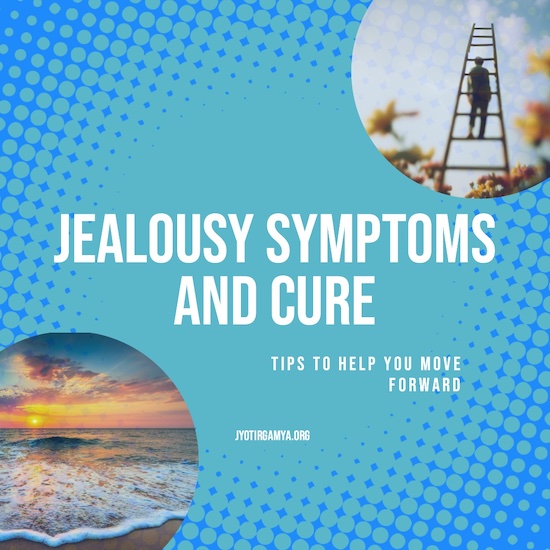Jealousy Symptoms and Cure
Story: Curious Case of Sobha’s Pathological Jealousy
Are you feeling possessive, intrusive, vindictive, and hateful? Do you intend to hurt someone or trash-talk them behind their back? You may suffer from intense jealousy if you answered yes to more than 3 of these questions.
Jealousy, a normal emotion experienced by everyone from time to time, can become a destructive force in relationships and mental health when it spirals into an uncontrollable intensity.
Sigmund Freud once dissected jealousy into two distinct categories: normal and projected.
Normal jealousy typically surfaces in relationships when a genuine threat to the bond emerges. However, for Shobha, it was something more challenging.
Shobha’s past was a tapestry of shattered self-esteem. It began with a high school crush who dismissed her affection with a laugh. Then there was the college boyfriend who abandoned her for someone more outgoing. Each disappointment chipped away at her confidence, leaving her with a lingering sense of inadequacy.

Years later, she found herself in a loving relationship with Raj, a kind, patient man who cherished her. Yet, her past experiences had left their mark. Shobha couldn’t help but feel jealous whenever she saw him enjoying time with his friends. She didn’t resent his friends but resented herself for feeling this way.
One evening, they attended a gathering with Raj’s close-knit circle of friends. Shobha watched as he effortlessly blended in, his laughter and camaraderie evident. Her confidence wavered, and her insecurities were amplified by the joyous atmosphere around her. The catalyst, the turning point, set her on an emotional rollercoaster.

She couldn’t vocalize her turmoil directly; it was too complex, too deeply ingrained. Instead, Shobha’s actions spoke volumes. She dropped cryptic remarks and sent sidelong glances, hoping Raj would decipher her feelings. But her attempts at communication only left him puzzled, straining their connection further.
One evening, her pent-up jealousy erupted into an unfounded accusation. She projected her own insecurities onto Raj, causing a rift in their relationship. It was a classic manifestation of jealousy from her deep-seated fears and doubts.
The relentless cycle of suspicion and accusation mirrored a form of pathological jealousy, a darkness that consumed those grappling with their mental health. Shobha’s mind became a breeding ground for irrational scenarios, each one reinforcing her unfounded beliefs.
Despite the turmoil, Shobha remained trapped in a pattern of behavior she couldn’t escape. She clung to Raj, demanding his unwavering attention and control over his actions. Her attempts to mold him to her desires bordered on obsession, all in a desperate bid to salvage their relationship.

As Shobha experienced it, pathological jealousy was driven by a tumultuous mix of insecurity, a yearning for affection, and an insatiable thirst for control.
Her emotional turbulence threatened to engulf her, and her relationship hung in the balance. As her journey unfolded, the question lingered: Would Shobha find a way to overcome her demons and emerge transformed, or would her jealousy continue to dictate her fate?
Pathological jealousy is a more severe form of jealousy that can be a symptom of other mental health conditions, such as obsessive-compulsive disorder. People with pathological jealousy have a distorted view of reality and believe that their partner is being unfaithful, even when there is no evidence to support this belief.
They may also engage in controlling and manipulative behavior, such as monitoring their partner’s phone calls and text messages or trying to isolate them from their friends and family.
In Shobha’s case, her pathological jealousy was causing her to become increasingly controlling and possessive. She believed she owned her partner and had the right to control his every move. She would accuse him of being unfaithful if he looked at another woman. She would also monitor his phone calls and text messages to keep him from spending time with his friends and family.
Pathological jealousy can be a very destructive force in a relationship. It can lead to isolation, conflict, and even violence. If you or someone you know is struggling with pathological jealousy, it is vital to seek professional help.
Introduction
Jealousy is a complex emotion that can be difficult to manage. Various factors, such as insecurity, low self-esteem, or fear of abandonment, can trigger it. When not managed effectively, jealousy can damage relationships and lead to negative consequences.
This article will explore the nature of jealousy, its causes, and how to manage it. We will also provide some tips for dealing with jealousy healthily.

Expert Advice
“To successfully approach jealousy, one must understand the nature and function of jealousy as an emotion. Jealousy is a compound emotion in a relational situation involving at least two other people (i.e., a triangular or larger group relationship). It pertains to the more primary emotional feelings of fear and pain that the love, attention, and other favors that one is due from a loved object are being taken away by a rival. Hence, jealousy begins with pain or fear before it transforms into
-
anger towards the rival and
-
the motivation to possess the loved object (and the persistent fear of losing it).
On a mental/cognitive level, the emotional process described above usually generates a fantasy (or an emotionally charged story) populated by internal figures representing the loved object, the rival, and the deprived self.
As the person invests more and more of their emotional energy into this fantasy (through spending time ruminatively thinking about it, acting out on it, or even fighting or suppressing it), the most subjectively real and convincing the fantasy becomes and the harder it is to distinguish the fantasy from reality.
Hence, to manage jealousy, a person must first distinguish between a relational situation where one’s connection with their loved object is genuinely compromised and one where the feelings of hurt, fear, and anger are amplified and intensified in one’s internal mental and emotional processes.
If it is the latter, it could be very healing if a person can explicitly permit themselves to identify, feel, and validate their own emotions, e.g., saying to oneself, I am ‘scared that I might lose him/her,’ ‘I am hurt when I thought he/she did X,’ ‘I am furious at them for Y.’ With self-compassion and perseverance, doing so will help the intensity of the feelings subside.
At that point, one should re-examine the situation and ask themselves, how much of my original thoughts or perceptions that had made me so jealous (fearful, hurt, and angry) are natural or proportional to the circumstances? What is another way of looking at the situation?
Sometimes, if the relational situation allows, meaning if there is enough trust and safety in the relationship, it could be helpful for the jealous person to initiate communication with the loved object to
-
admit to the vulnerable feelings they suffer from and
-
Seek support, especially if the person can do so responsibly and non-blamingly.
For example, instead of saying, ‘You hurt me when you did X,’ say, ‘I felt very hurt by the thought that Y happened, I know I am compassionate about this and might have amplified some of these feelings myself, but it would be great if you could let me know if any of this is true.
An even more self-empowering way to handle jealousy in communication is to communicate that one takes 100% responsibility for the emotion while freeing oneself from the outcome of the interaction, e.g., by saying, ‘I am feeling very hurt by the thought that X and Y have happened. I don’t know if they have happened, but I am fully responsible for these feelings because I have been putting energy into these ideas.
By saying these to you, I can help you understand why I have not been able to connect with you entirely. I am doing so because I value our relationship and want to reconnect with you. The latter communication could be compelling and, when done right, often elicits a lot of genuine communication between people.
Even if it fails to elicit honesty or a kind response from the other person, the outcome is valuable because it offers a lot of insight into the nature of the person one is dealing with. For instance, you may then legitimately question what type of person would not respond kindly even when one has initiated a conversation with complete authenticity and responsibility and, relatedly, if the relationship with this person is as healthy or helpful as one might have assumed.
However, since this communication style requires a high level of emotional reflectivity, resilience, clarity, and some levels of risk-taking, one only does so with the guidance of a therapist or coach and after a certain amount of practice.
“Jealousy is evidence of our insecurity and self-doubt (no baby is born with self-doubt) when we learn to believe that another’s opinion or behavior determines our value. It isn’t. You are a child of God.
Jealousy is based on wanting something (or someone) that someone else has AND not wanting them to have it. Envy is based on wanting something (or someone) that someone else has AND it being okay that they have it. Envy is a compliment. Jealousy is an attack..”
Jealousy can be termed as nothing more than a fear of abandonment. It can indicate a strong desire for an individual. But on the contrary, it may most likely stem from an individual’s insecurities about themselves or their relationship. When insecurity in a relationship runs rampant, jealousy can rapidly grow into paranoia and obsession. This may threaten to destroy the relationship the individual fears losing.
“I’m sorry. I get jealous sometimes and overreact. It’s only because there’s a bigger chance of me losing you than you losing me.”
This statement is a classic example of an unhealthy attachment style that exhibits severe insecurities, low self-esteem, and significant abandonment trauma. So, one needs to differentiate when their partner reacts or acts in such a way. Does that come from a place of genuine concern towards the connection, or is it from a place of control and being territorial is the question. Jealousy is a powerful emotion and, thus, if not worked well with, can ruin relationships substantially.
“Jealousy is a part of human nature. It comes automatically when you love someone and that someone feels closer to another person. It is all about trust. You are jealous because your person treats somebody else way better than they treat you. So ask yourself, is it worth it to be with that person?
If you feel yes, I suggest talking it out with that person, and if your answer is No, then simply save yourself by moving out of that person’s life. A person who loves you and cares for you will never put themselves in the situation to lose you, so it’s all about how you want to deal with it. You want to stand there, watch and hurt yourself, or simply free yourself by discussing it with that individual. The decision is always ours; the choice is always ours. We just forget to choose and use it.”
“Jealousy is usually about one’s insecurities rather than a partner’s behavior.
Pausing before reacting and doing some self-reflection and self-inquiry can be helpful to assist in responding rather than reacting. I recommend reflecting with a trusted friend or therapist to gather more insight and feedback.”
Conclusion
Jealousy is a normal emotion but can become destructive if not managed properly. Following these tips, you can learn to cope with jealousy healthily and protect your relationships.
In addition to the tips mentioned above, it is essential to remember that jealousy is often a sign of insecurity. If you are feeling jealous, building your self-esteem and confidence is essential. This can help you to feel more secure in your relationships and less likely to feel jealous.
Jealousy is a complex emotion, but it is not impossible. You can learn to manage your jealousy healthily by following the tips above.
Further Reading on Jealousy
Eleven Cures to Workplace Jealousy
Five Easy Ways to Manage Jealousy
Secrets to a Lasting Relationship
How to Avoid Relationship Problems
9 Relationship Management Advice from Experts
If you liked reading the article, do share it with folks who would benefit from it.
Want to stay connected? Here’s our twitter.